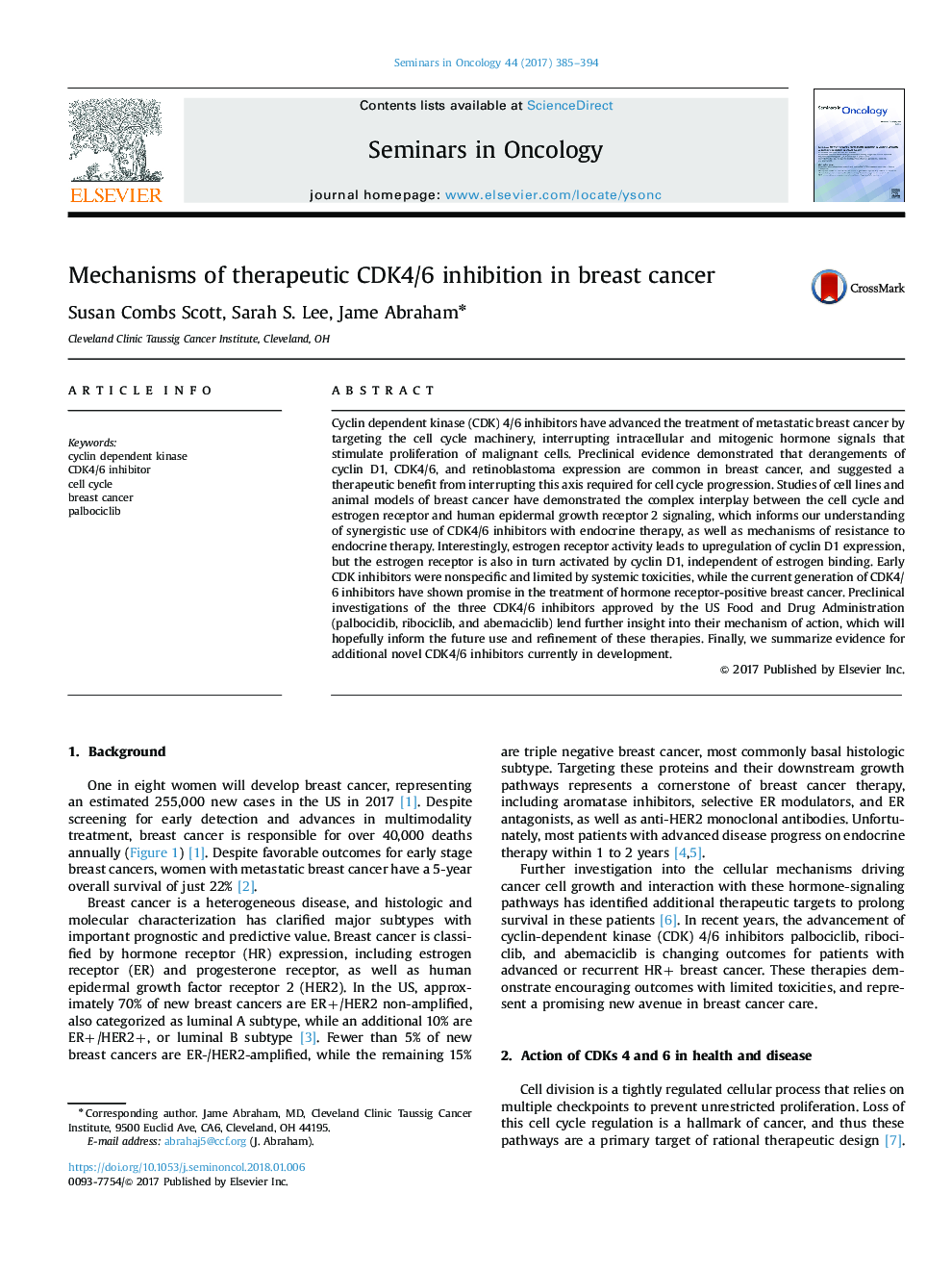| Article ID | Journal | Published Year | Pages | File Type |
|---|---|---|---|---|
| 8459702 | Seminars in Oncology | 2017 | 10 Pages |
Abstract
Cyclin dependent kinase (CDK) 4/6 inhibitors have advanced the treatment of metastatic breast cancer by targeting the cell cycle machinery, interrupting intracellular and mitogenic hormone signals that stimulate proliferation of malignant cells. Preclinical evidence demonstrated that derangements of cyclin D1, CDK4/6, and retinoblastoma expression are common in breast cancer, and suggested a therapeutic benefit from interrupting this axis required for cell cycle progression. Studies of cell lines and animal models of breast cancer have demonstrated the complex interplay between the cell cycle and estrogen receptor and human epidermal growth receptor 2 signaling, which informs our understanding of synergistic use of CDK4/6 inhibitors with endocrine therapy, as well as mechanisms of resistance to endocrine therapy. Interestingly, estrogen receptor activity leads to upregulation of cyclin D1 expression, but the estrogen receptor is also in turn activated by cyclin D1, independent of estrogen binding. Early CDK inhibitors were nonspecific and limited by systemic toxicities, while the current generation of CDK4/6 inhibitors have shown promise in the treatment of hormone receptor-positive breast cancer. Preclinical investigations of the three CDK4/6 inhibitors approved by the US Food and Drug Administration (palbociclib, ribociclib, and abemaciclib) lend further insight into their mechanism of action, which will hopefully inform the future use and refinement of these therapies. Finally, we summarize evidence for additional novel CDK4/6 inhibitors currently in development.
Related Topics
Life Sciences
Biochemistry, Genetics and Molecular Biology
Cancer Research
Authors
Susan Combs Scott, Sarah S. Lee, Jame Abraham,
